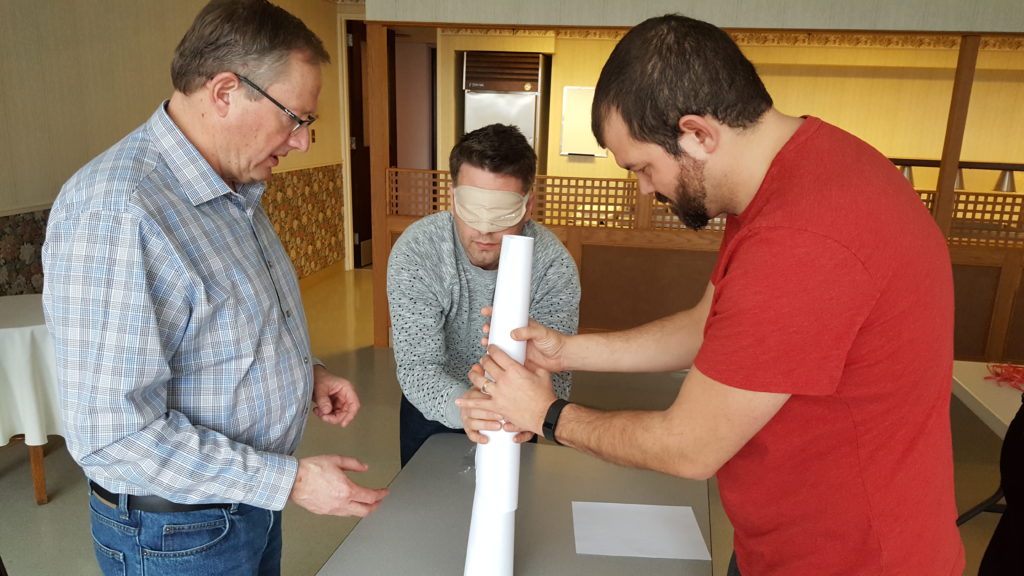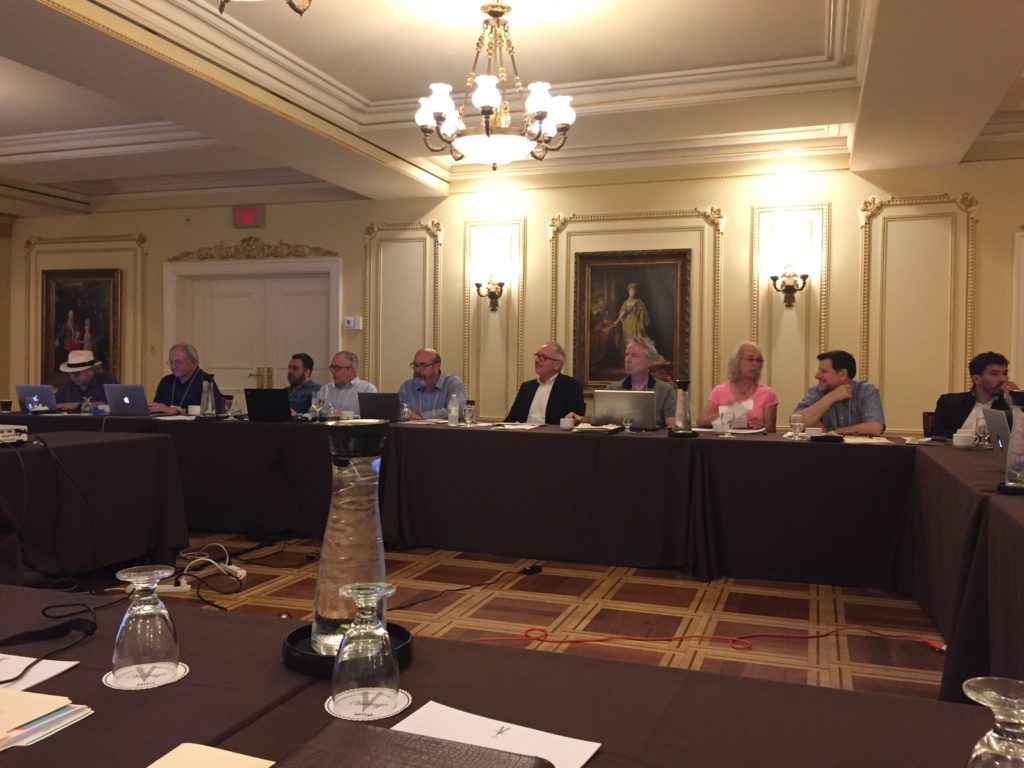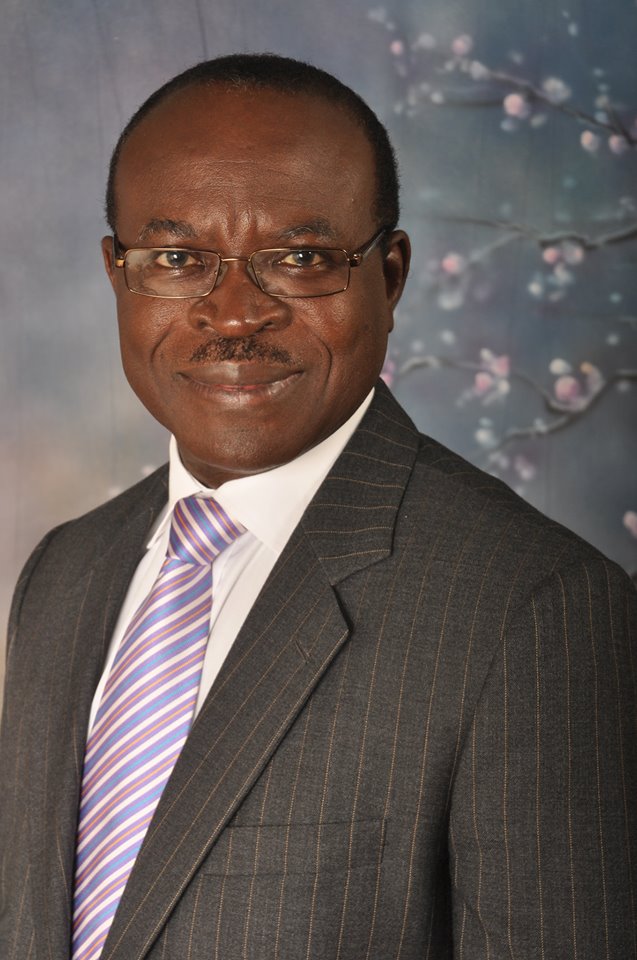What Transpired in Court: a Blow to Blow Account
The day after my trial I sent a newsletter to all my family, friends and ministry partners around the world who had been praying for righteousness, truth and justice to prevail, giving them a ‘blow to blow’ account of happenings on that eventful day, November 28, 2018. You may read it here. Acquitted! Discharged!! Free!!!
Leadership is Likadis Likadat
The idea of ‘leadership ellipse’ is perhaps the most striking leadership concept I’ve come across most recently. How in the world is one supposed to ‘balance’ the inner spiritual life and the outer demands of leadership and tame tensions like being in the world but not of it, faithfulness and fruitfulness, impact and profit, being and doing… and remain sane?!
LIKAWHAT?
So after paying lots of money to take a course in Mentoring these were among the final words of admonishing (from Dietrich Bonheoffer): “Let him who cannot be alone beware of community” and “Let him who is not in community beware of being alone.” Huh? Now, which is which? Give me back my money! LOL!
Welcome to the business of life and leadership–paradox and ambiguity. To live in one extreme or the other is the easy option (any ‘fool’ can, excuse me to say); but to be able to hold two extremes in balance in your head, heart and in life is the real deal and few are able to handle this well. Yet that is an essential ingredient for success. In fact, sometimes these apparently contrasting dimensions of life are not even to be balanced per se but to be continually held in tension. To be comfortable with the uncomfortable tension and do well therein, that is the issue!
Pursuance of a life and leadership of integrity is living as activists and contemplatives, following and leading, managing our outward leadership responsibility and inward spiritual reality as well as having external organizational success principles and internal spiritual disciplines jiving. Robert Fryling, in his insightful work, The Leadership Ellipse, brings these to the fore and challenges leaders to integrate our lives in the sense of one’s outer and inner worlds being one, synchronous. Fryling’s metaphor to describe a life holding these foci and tensions together is the ellipse.
CALL IT WHAT YOU MAY—BUT IT’S THERE!
Why does Fryling use the ellipse (an elongated circle) metaphor and how useful is that in all the cross-cultural contexts in which I serve? I ask because there are too many times when one is caught off guard trying to use a metaphor (like ‘snowball effect’) that does not cross cultures well. I don’t want a situation of trying to relate a concept that I appreciate so well from a Western context but struggle to transmit.
Fryling’s love for, and deep understanding of, geometry led him to employ this amazing metaphor because an ellipse “is defined by two distinctly different focal points that are of equal importance. One point is not inferior to the other, and both are needed if there is to be an ellipse.”
For Fryling, “one focal point is our inner spiritual life, our longings, our affections and our allegiance to God. The other focal point is our outer world and organizational life, what we do and how we do it. Together these focal points define an ellipse that circumscribes our true spiritual leadership. It represents the dynamic tension between our soul and our actions, and gives us a mental image for personal, spiritual and professional integrity in who we are and how we lead.”
While almost every schooled person, irrespective of culture, may ‘get it,’ I’m glad he uses other metaphors which everyone can appreciate, like form and freedom, the fixed bone structure and flexible muscles of the human body plus basic theology of the full humanity and full divinity of Jesus Christ.
PREDICTOR OF LEADERSHIP SUCCESS
This sense of dissonance between a leader’s outer world and inner world is normal. “We live with paradoxes all of the time,” says Fryling; even Jesus the ultimate leader wasn’t spared. His prayer for his followers was “to live in the world without at the same time being of the world.” In many ministries, like mine, there is a constant struggle between being faithful and being fruitful.
Those are leadership ellipses right there when “waiting on God to move or to shift something inside me while at the same time still needing to lead in the public arena” (Ruth Haley Barton). In fact, Barton goes on to mention how “we might notice tension between what the spiritual life requires and what it takes to be (or at least appear!) successful in the current cultural milieu. On our good days, we might experience these tensions as a place of paradox where creative solutions might be found, but on other days they feel like polarities that are impossible to manage.”
In rapid fire, she continues: “…there is real tension between what the human soul needs in order to be truly well and what life in leadership encourages and even requires. There is the tension between being and doing, community and cause, truth-telling and putting the right spin on things. There is the tension between the time it takes to love people and the need for expediency. There is the tension between the need for measurable goals and the difficulty of measuring that which is ultimately immeasurable by anyone but God himself.
“There is the tension between the need for organizational hierarchy with all the power dynamics this creates and the mutuality and interdependence of life in community to which we as Christians are called. There is the tension between knowing how to “work the system” and entering into trustworthy relationships characterized by trust and a commitment to one another’s well-being. There is the tension between the need for an easy discipleship process through which we can efficiently herd lots of people and the patient, plodding and ultimately mysterious nature of the spiritual transformation process. And there is the challenge of knowing how to speak of these things in fruitful ways in the very inside places of power without becoming polarized in our relationships with one another.” Phew!
INTEGRITY AGAIN!
Living in the tension of this and that, yin and yang, and learning to be comfortable in the space and place, while taming the tension has a lot to do with living a life of integrity. Remember, integritas is about being one whole (integers); not fractionated. And it’s hard.
My seminary president put it this way in his book, Called: “Authentic discipleship delivers us from a compartmentalized life. Rather than having a life with segments and partitions—divisions between sacred and secular, personal and public, image and reality—we’re called to one whole and integrated life. It has to be said, of course, that we usually don’t want such a life and prefer the separate compartments. Such divisions provide room for our conflicting and contradictory instincts and desires. This is how we try to manage our several selves. It’s the hedge-your-bets approach to life, highly appealing but ultimately disappointing. It’s like approaching life as a series of snacks rather than committing ourselves to a full meal” (Mark Labberton).
GAME ON
Fryling, Barton, Labberton, Scazzero and others have assured me that the paradoxes and tensions that I sense as a leader are not only real but normal…and can be successfully grappled with. I’m more willing to embrace elliptical leadership. How about you?
After studying several leaders I have come to the conclusion that the degree to which one is able to be comfortable with and live, love and lead well in the tension of this and that, yin and yang, determines their ultimate leadership success or otherwise. From my little experience and research, the best leaders in the world are those who are not only able to get comfortable with being uncomfortable living in such tensions but mastered the art of dexterously handling both well.
As long as we are alive we will live with ambiguity and grapple with paradox. Part of our discipleship—learning to live and lead like Jesus—is to master how he lived his elliptical leadership life as the God-Man, knowing it can be done; and it must be done.
Works Cited
Barton, Ruth Haley. 2008. Strengthening the Soul of your Leadership. Downers Grove, IL: InterVarsity Press.
Fryling, Robert. 2010. The Leadership Ellipse: Shaping How We Lead by Who We Are. Downers Grove, IL: InterVarsity Press.
Labberton, Mark. 2014. Called: the Crises and Promise of Following Jesus Today. Downers Grove, IL: InterVarsity Press.
I DON’T CARE HOW GOOD YOU ARE (#2)~If you’re not a ‘walkie-talkie’
When “what people say, what people do, and what they say they do are entirely different things” (Margaret Mead) we’re in real trouble. On this Father’s Day, I want to honour the one person, of all the leaders I know in this world, who I can vouch for as walks his talk: my own father.
WHO SAID WHAT?
In my head I was debating whether or not to continue this “I Don’t Care How Good You Are” series on character, ethics, morality and integrity when I chanced upon an quote from the newly-launched book of a dear family friend (actually my Dad’s Best Man nearly 40 years ago!): “What a person truly believes isn’t what they think or say, it’s what they do” —Queenie in Lark Rise to Candleford. That was it; that was my confirmation to do this piece. So let’s roll with another in this character series. But this one is very special because it is dedicated to my own biological father.
In many places and pieces of literature, even in Scripture, the life we lead is often referred to as our “walk.” Let’s examine what it means when our talk (what we say we believe in, who say we are or what say we do) doesn’t match our walk.
WHY DAD?
If there ever was a man of integrity I could vouch for it is my father: Reindorf Kofi Baah Perbi. In fact, even way back in the 1980s during his days as Chief Accountant at the then Social Security Bank (now SG-SSB), when his signature was forged and monies stolen it was his integrity that saved him. Everyone vouched for him: “Chief would never do such a thing,” the convincingly told the authorities.
Those were the heady days of revolution and military rule in Ghana so he had even received a pre-judicial slap or two already when he was picked up by soldiers and sent to Gonja Barracks. After several weeks of tribunal hearings (and I remember us going to fetch him from tribunal hearings after we had been picked up from Ridge Church School), eventually, the perpetrators were found, tried and shot via firing squad. It was no joke. One of them, I believe, is still on the run—he must be still running now or dead from running.
When Dad retired as Ghana’s Deputy Senior Partner of KPMG (one of the ‘big four’ accounting firms in the world) in April 2015, it was humbling to hear how many of his accounting, management consulting, and audit colleagues honoured him for this one thing: integrity. I sat at those banquets (yes, there was more than one! Lol!) soliloquizing, “I want that. When all is said and done, that’s the kind of man I want to be!”
LAYING IT DOWN
Contrast Dad with Kenneth Lay, who was the CEO of Enron. He played a leading role in the corruption scandal that led to the downfall of the Enron Corporation. Unfortunately, Lay and Enron have become synonymous with corporate abuse and accounting fraud since the scandal broke in 2001.
In an interview with the indefatigable Larry King of CNN, after pleading not guilty to criminal counts having to do with his leadership at Enron, these were Mr. Lay’s words: “I lived my life in a certain way to make sure that I would never violate any law – certainly not criminal laws – and have always maintained that most important to me was my integrity, my character, and my values.”
Something doesn’t add up here because in 2004, Lay was indicted on 11 counts of securities fraud and related charges. He was found guilty on May 25, 2006, of 10 counts against him which meant he could face anything from 20 to 30 years in jail. However, only three-and-a-half months before sentencing, Kenneth Lay died of a heart attack while vacationing.
Same thing with Bernie Madoff who founded a Wall Street firm in 1960 of which he was chairman until his arrest on December 11, 2008. He would soon plead guilty to 11 felonies, having turned his wealth management business into a massive Ponzi scheme with almost $65 billion of fabricated gains. Yet hear his defense attorney, Daniel Horowitz: “…Bernard (Bernie) Madoff is a longstanding leader in the financial services industry. He will fight to get through this unfortunate set of events. He is a man of integrity.” Madoff is currently serving a life term in a federal prison for his kind of integrity.
STRANGE ANIMAL
Did you not just read Mr. Lay saying integrity was most important to him? In my short life, perhaps there is no word I’ve found more misunderstood and misappropriated than the word, “INTEGRITY.”
Integrity comes from the Latin root integritas, which means entire or whole. It’s the word from which we get “integer” in Mathematics. It may help to remember that integers are positive or negative whole numbers. To have integrity, therefore, means you are whole, you are one: your private and public lives are one; your charisma and character jive; what you say and what you do are in sync.
Extending the Math metaphor, a life of no integrity on the other hand is fractionated—instead of integers, we have fractions. That is when the Yaw you see behind the pulpit is different from the Yaw you see at the pub; and different from the Yaw you experienced on vacation in Panama; who is also very different from the Yaw at home… Sadly, not too long ago even a pastor whose public image did not match who he truly is was exposed on CNN.
THE ONLY TIME I BELIEVE IN ATHEISTS
When it comes to integrity, I dare say that many non-religious people, even atheists, have more integrity than many so-called religious people. This is what I mean. If Steve says, “I lie, I deceive, I steal.” Steve has low morality. When Yaw says, “I abhor lying, I don’t deceive, I never steal,” he has high morality.
BUT, if Yaw goes on lying, deceiving and stealing then Yaw is not a person of integrity. He doesn’t walk his talk. However, if Steve goes ahead to lie, deceive and steal, although he has low morality he actually is a person of integrity (albeit in a very twisted way) because he walks his talk. He said he will do these and he does.
The extent to which your walk and talk jive is the extent to which you are a person of integrity.
WANTED: WALKIE-TALKIES
I’m not perfect; none of us is. Many times I haven’t kept my word—including keeping appointments. It isn’t a perfect world either; stuff happens that alter our good intentions. One thing I do, however, is strive to call or email and apologize profusely, letting the person know I had every intention to keep my word but now very sorry I’m unable. The Psalmist David, takes this even a notch further saying a person of integrity is one who keeps his/her word, even when it hurts.
Integrity doesn’t mean you are perfect; but it sure means that when you ‘mess up’ you quickly and truly ‘fess up’. That is what made God call David, albeit an adulterer and a murder, a man of integrity (Psalm 78:72), even “a man after my own heart.”
I have observed with shock how people say things they don’t mean and mean what they don’t say; and say things they have no intention of ever acting on. Time wouldn’t allow me to go into my private disappointments in the lives of public speakers whose private lives don’t measure up to their public statements or images. And they have no qualms about it. The Lays and Madoffs did not just wake up one day and find themselves in court—a little slip, a little lie, and slowly slowly but surely surely down a slippery slope we go.
It doesn’t matter how good you are at what you do (skill, talent, gifting). If consistently what you say does not match what you do (walk), I shan’t hire you. Or if I do by mistake or because I want to give you a chance, you’re already on the firing line—it’s just a matter of time, if nothing changes. The world has billions of smart phones; what we need now is truly smart people. We need more walkie-talkies—people who walk their talk and talk their walk.
Thanks Dad, for showing me the way. Happy Father’s Day!






